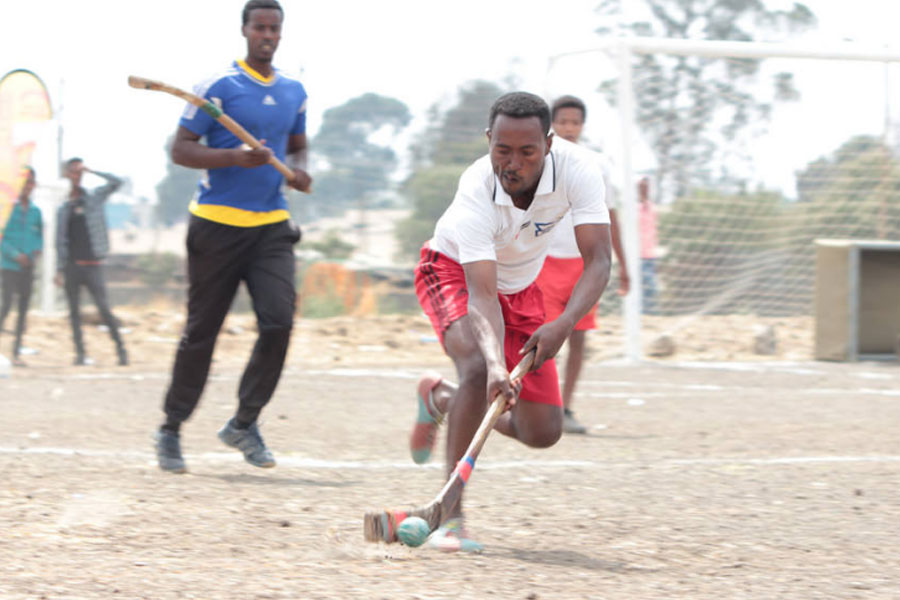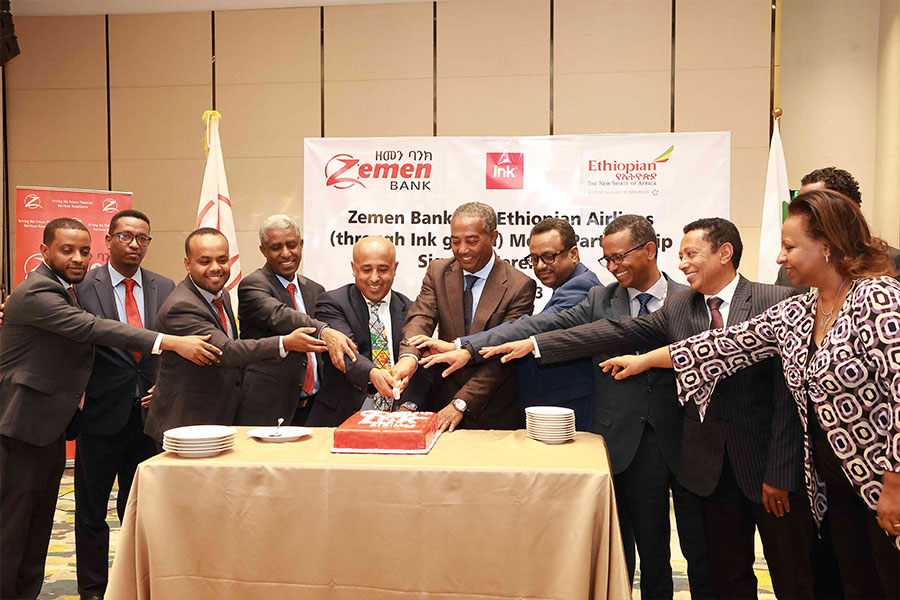
Radar | Dec 05,2018
Mar 9 , 2019
By Eden Sahle
The situation in Ethiopia at a national level is disconcerting to the point that few are paying attention to the attitudinal shifts that have been taking place for the past few years. A nation deprived of an essential national myth is finding it hard to exercise restraint and discipline essential for the respect of human dignity.
I was in Kazanchis on a late Friday afternoon with a friend. We were a short distance from a church and a cleric that was in a quarrel with a man. To our surprise, and everyone close to us, a fight broke out between the two men in what must have seemed like a scene from a farcical play. It took the involvement of onlookers to stop a fight that was getting too violent.
It is hard not to take stock of the saddening socio-cultural changes currently taking place in Ethiopia. Respect and human dignity are slowly becoming things of the past. No matter the age and social status of individuals, people are ignoring their responsibilities and following their whims.
People overlook the fact that disrespecting and abusing others says more about our attitude toward ourselves. The respect we give others is an extension of how we see ourselves.
Anyone can lose self-control at any point in life. It is only human nature to snap and do things we later come to regret but a lack of self-reformation leads to the practice being etched deeper into our heads. Every new bad habit, or a repeat of something old, that we allow ourselves becomes harder to break out off the longer we refuse to pay attention to it.
When we are led by our anger and emotions, it is inevitable to find ourselves in a situation we could have easily avoided had we stepped back and rationally thought about the consequences.
Self-discipline is highly correlated with educational, occupational and social success; it is among the most important qualities that can contribute to a person’s achievement and happiness. People who are not led by their temporary emotions avoid violence rather than having a meltdown at every turn.
Most times, we are better served walking away from incidents likely to lead us toward violence and cutting ties with those that encourage such impulses within us. This is not cowardice. In fact, it is bravery, for we elect to spend our time fighting for and doing something that moves us and the world forward.
The alternate path is actually easier and the one most followed. It does not take much to be caught up in counterproductive incidents. Making ourselves believe we are always right and that others have the obligation to pander to our thinking, which seems to be part of the criteria for being a politician today, is easy.
It takes moral upstanding citizens to assume responsibility, to give in when proven wrong and know when to quit.
We should not allow situations and temporary feelings to dictate our actions. We should instead strive to make informed, rational decisions on a daily basis without feeling overly stressed and upset about our encounters.
The cultural and social norm that perceives violence as strength only ends eating itself up. These norms are highly influential in shaping individual behaviour, including the use of violence. Social standards and a democratic culture can help us break out of such regressive behaviour by ensuring that conflict can be resolved through debates and experiments. But this still would require someone to accept defeat.
Breaking bad habits and building new and constructive ones requires us to treat others the way we want to be treated. Perhaps we cannot succeed in controlling others, but we would have risen above our own impulse, which is a major achievement in and of itself.
What successful people have come to understand is that discipline is a prerequisite to the achievement of dreams in life. We need to create a foundational set of good habits that can help us respect and understand each other. It is then that we can change society from the ground up.
Building a fairer society that is free from violence will only be possible if we can practice more civilised conflict resolution pathways. It is only then that we can begin to consider ourselves a modern state.
PUBLISHED ON
Mar 09,2019 [ VOL
19 , NO
984]

Radar | Dec 05,2018

Radar | Apr 30,2021

Radar | Mar 16,2024

Radar | Sep 03,2022

Viewpoints | Sep 11,2020

Featured | Jan 05,2019

Radar | Sep 24,2022

Radar | Oct 23,2023

Radar | May 06,2023

My Opinion | Jun 20,2020

My Opinion | 131548 Views | Aug 14,2021

My Opinion | 127903 Views | Aug 21,2021

My Opinion | 125879 Views | Sep 10,2021

My Opinion | 123510 Views | Aug 07,2021

Dec 22 , 2024 . By TIZITA SHEWAFERAW
Charged with transforming colossal state-owned enterprises into modern and competitiv...

Aug 18 , 2024 . By AKSAH ITALO
Although predictable Yonas Zerihun's job in the ride-hailing service is not immune to...

Jul 28 , 2024 . By TIZITA SHEWAFERAW
Unhabitual, perhaps too many, Samuel Gebreyohannes, 38, used to occasionally enjoy a couple of beers at breakfast. However, he recently swit...

Jul 13 , 2024 . By AKSAH ITALO
Investors who rely on tractors, trucks, and field vehicles for commuting, transporting commodities, and f...

Jun 28 , 2025
Meseret Damtie, the assertive auditor general, has never been shy about naming names...

Jun 21 , 2025
A well-worn adage says, “Budget is not destiny, but it is direction.” Examining t...

Jun 14 , 2025
Yet again, the Horn of Africa is bracing for trouble. A region already frayed by wars...

Jun 7 , 2025
Few promises shine brighter in Addis Abeba than the pledge of a roof for every family...

Jun 29 , 2025
Addis Abeba's first rains have coincided with a sweeping rise in private school tuition, prompting the city's education...

Jun 29 , 2025 . By BEZAWIT HULUAGER
Central Bank Governor Mamo Mihretu claimed a bold reconfiguration of monetary policy...

Jun 29 , 2025 . By BEZAWIT HULUAGER
The federal government is betting on a sweeping overhaul of the driver licensing regi...

Jun 29 , 2025 . By NAHOM AYELE
Gadaa Bank has listed 1.2 million shares on the Ethiopian Securities Exchange (ESX),...